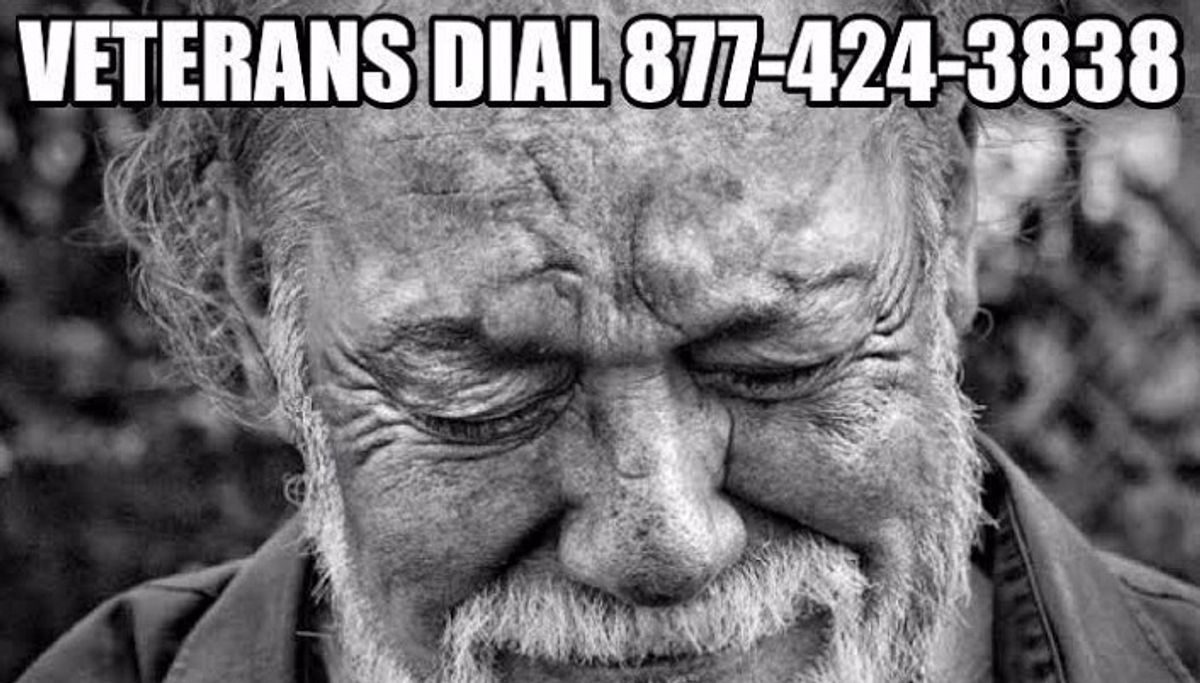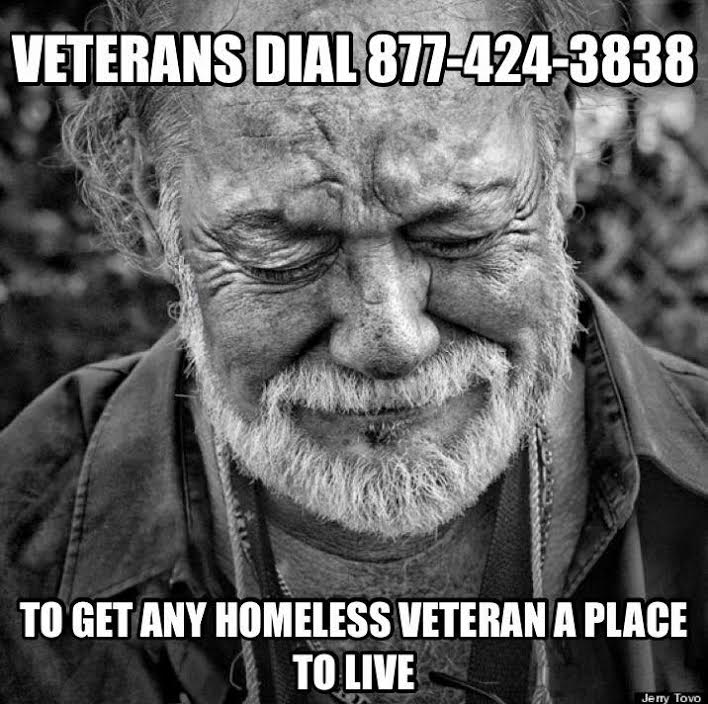[green-label]Claim:[/green-label] Veterans can dial 877-424-3838 to secure immediate shelter for any homeless veteran.
[dot-mixture]MIXTURE[/dot-mixture]
[green-label]WHAT'S TRUE:[/green-label] The phone number for the National Call Center for Homeless Veterans is 877-424-3838.
[red-label]WHAT'S FALSE/UNDETERMINED:[/red-label] Calls to this number will result in immediate housing arrangements for homeless vets.
[green-label]Example:[/green-label][green-small][Collected via e-mail and Facebook, December 2015][/green-small]
Is this real?Let's make this go viral!
[green-label]Origins:[/green-label] On 20 November 2015 a Facebook user shared the above-reproduced graphic, urging fellow users to make it "go viral" and indicating that calls to the phone number 877-424-3838 would get "any homeless veteran a place to live."
With winter approaching (and renewed interest in homelessness among veterans due to an ongoing refugee crisis) the image and its claims became popular among Facebook users. The phone number 877-424-3838 indeed belonged to the National Call Center for Homeless Veterans (operated by the U.S. Department of Veterans Affairs), and the hotline's page described its range of services:
The Department of Veterans Affairs' (VA) has founded a National Call Center for Homeless Veterans hotline to ensure that homeless Veterans or Veterans at-risk for homelessness have free, 24/7 access to trained counselors. The hotline is intended to assist homeless Veterans and their families, VA Medical Centers, federal, state and local partners, community agencies, service providers and others in the community.
Clearly, disseminating information about the hotline and its purposes served to potentially benefit some homeless veterans. However, the wording of the graphic potentially led readers to believe that a call placed to the line would ensure a homeless vet would receive immediate housing services; however, particularly in winter, it was important to understand the scope of the hotline and its limitations.
While the National Call Center for Homeless Veterans provided access to counselors 24 hours a day and seven days a week, its primary function wasn't to directly provide housing for at-risk veterans. Counselors on the line possessed the ability to possibly connect veterans with local resources, but did not appear capable of directly arranging those resources.
Local law enforcement agencies often engage homeless protection protocols during severe weather, such as New York City's Code Blue:
Implemented when the temperature drops to 32 degrees or lower, or during times of sustained winds and precipitation, Code Blue calls for increased street outreach efforts - thereby doubling the number of vans in the field and enabling teams to check on individuals more frequently. In addition, when Code Blue is in effect, individuals experiencing homelessness may access any of the agency's adult facilities, including shelters and drop-in centers, without going through the usual intake process."Code Blue is a procedure that, above all else, aims to save lives," said DHS Commissioner Michele Ovesey. "As we strengthen and maximize agency outreach efforts, we do so knowing the great importance, and urgency, of reaching as many vulnerable individuals as possible, Citywide."
It's possible that a call placed to the National Call Center for Homeless Veterans would result in eventual help for a homeless vet, but 877-424-3838 might not be the best number to call for immediate assistance. In addition to the hotline, concerns about the immediate welfare of a homeless veteran directed to local law enforcement agencies could help determine if direct services were available.
[green-label]Last updated:[/green-label] 2 December 2015
[green-label]Originally published:[/green-label] 2 December 2015

